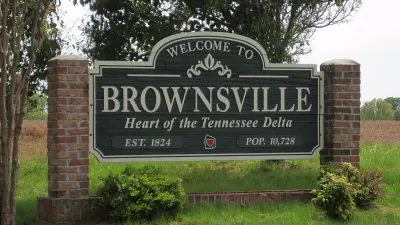New report by the Global Commission on the Economy and Climate describes specific actions which can strengthen economic performance and reduce climate change risks. A key strategy is to build better, more productive cities.
The Global Commission on the Economy and Climate is a major new international initiative to provide independent and authoritative evidence on actions which can strengthen economic performance and reduce climate change risks. It is a coalition of major international organizations, guided by some of the world's leading economists and research organizations.
Today the Commission released a report, Better Growth, Better Climate which sets out a ten point Global Action Plan for governments and businesses to secure economic development in a low-carbon economy. This report is based on research conducted by a global partnership of eight leading research institutes: World Resources Institute (WRI, Managing Partner), Climate Policy Initiative (CPI), Ethiopian Development Research Institute (EDRI), Global Green Growth Institute (GGGI), Indian Council for Research on International Economic Relations (ICRIER), LSE Cities, Stockholm Environment Institute (SEI) and Tsinghua University.
Chapter 2 explores the roles that resource-efficient cities can play in achieving these goals. Building more productive cities can boost economic prosperity and help tackle climate change. The Commission used a database of the world’s largest cities to identify those that are particularly important in terms of impacts on the global economy and climate out to 2030. The analysis shows these 468 cities will account for over 60 percent of global income growth between 2012 and 2030, and with business-as-usual development patterns they will account for 45 percent of global energy-related emissions. Actions that increase resource efficiency in these cities can be particularly effective at achieving global economy and climate goals.
FULL STORY: Better Growth, Better Climate: The New Climate Economy Report

Study: Maui’s Plan to Convert Vacation Rentals to Long-Term Housing Could Cause Nearly $1 Billion Economic Loss
The plan would reduce visitor accommodation by 25,% resulting in 1,900 jobs lost.

North Texas Transit Leaders Tout Benefits of TOD for Growing Region
At a summit focused on transit-oriented development, policymakers discussed how North Texas’ expanded light rail system can serve as a tool for economic growth.

Why Should We Subsidize Public Transportation?
Many public transit agencies face financial stress due to rising costs, declining fare revenue, and declining subsidies. Transit advocates must provide a strong business case for increasing public transit funding.

How to Make US Trains Faster
Changes to boarding platforms and a switch to electric trains could improve U.S. passenger rail service without the added cost of high-speed rail.

Columbia’s Revitalized ‘Loop’ Is a Hub for Local Entrepreneurs
A focus on small businesses is helping a commercial corridor in Columbia, Missouri thrive.

Invasive Insect Threatens Minnesota’s Ash Forests
The Emerald Ash Borer is a rapidly spreading invasive pest threatening Minnesota’s ash trees, and homeowners are encouraged to plant diverse replacement species, avoid moving ash firewood, and monitor for signs of infestation.
Urban Design for Planners 1: Software Tools
This six-course series explores essential urban design concepts using open source software and equips planners with the tools they need to participate fully in the urban design process.
Planning for Universal Design
Learn the tools for implementing Universal Design in planning regulations.
City of Santa Clarita
Ascent Environmental
Institute for Housing and Urban Development Studies (IHS)
City of Grandview
Harvard GSD Executive Education
Toledo-Lucas County Plan Commissions
Salt Lake City
NYU Wagner Graduate School of Public Service





























